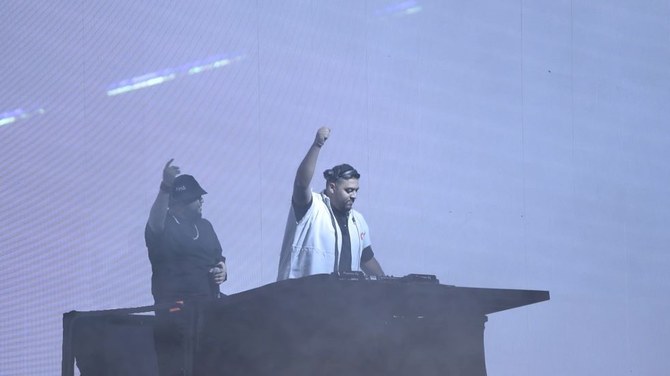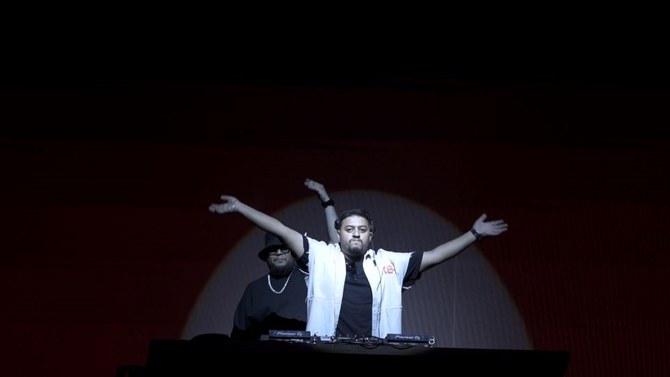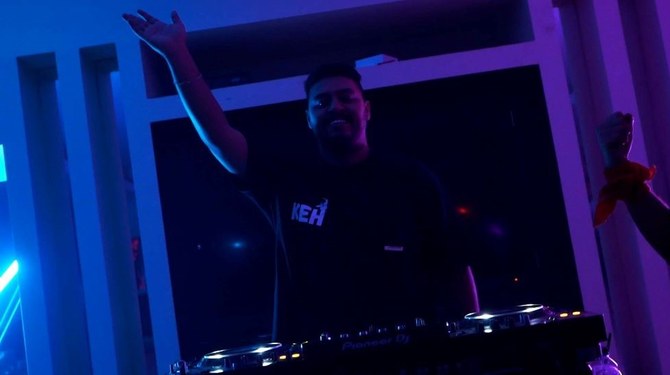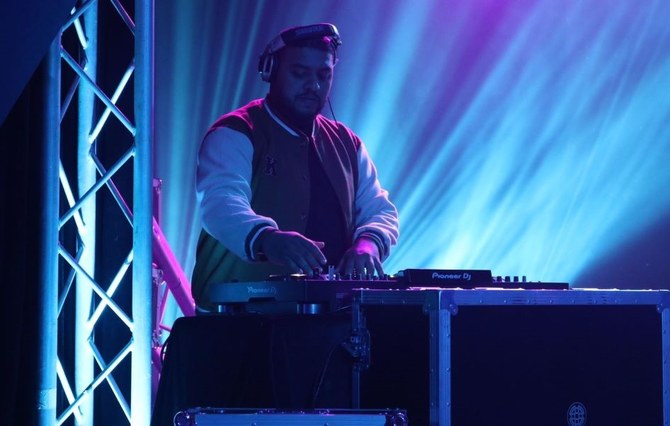RIYADH: Though delivering beats and remixes for a living may seem risky, Saudi DJ KEH does not regret quitting his job at airline carrier Saudia to work as a professional DJ.
“My music career started in 2017 with great potential to make a huge difference in the (electronic dance music) scene in Saudi Arabia due to the popularity and unique style,” he told Arab News.
“In 2017, I went to an event in the Philippines to attend an international DJ (event), and from here the spark started,” he said, adding that he was transfixed by the way the DJs at the turntables bewitched audiences with their shows.
“There, I realized that I wanted to be a DJ. I didn’t even finish my vacation,” he said. “I went back to start learning, but my family was not supportive at the beginning because, as always, there is something strange about anything new … but after a while, my mother supported me in every possible way.”
Now DJ KEH gets requests to play at public and private events, and has played across a whole raft of events in Saudi Arabia.
“The nice thing about being a DJ is that you can create a common bond between you and the audience and take them on a journey through music,” he said of his profession. “Through music, you can enter the hearts of all people without saying a single word.”
He added that he thinks that it is important for music classes to be introduced into all communities.
“It is very important to have music in the community to learn about other cultures. The language of music brings all the world together,” said the DJ.
He says his musical journey has been influenced by many DJ’s, including a close friend.
“I was inspired by my friend and my first supporter, Hani Al-Bangari, and there are many local talents. Globally, there are many, starting with David Guetta and Martin Carol Cox,” he said.
Sharing his future plan, which is to represent his country at the biggest international events as well as possible, he said: “I want to prove that we are successful in all areas whenever the opportunity arises.
“I think the government is giving space to talented local musicians, and this is one of the directions of Vision 2030. Now, my goal and the goal of all DJs is to develop the DJ profession in Saudi Arabia.”


























